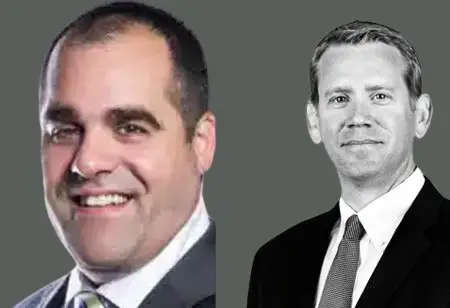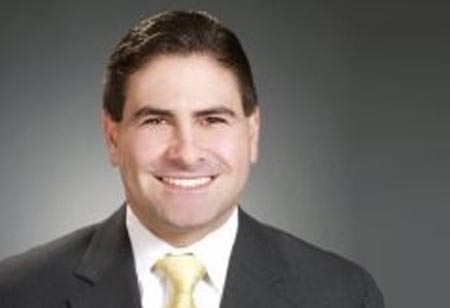Thank you for Subscribing to Construction Business Review Weekly Brief

Transforming Real Estate Through Technology And Leadership
Jesse is a bright, enthusiastic, team-oriented individual. His structured approach, coupled with extensive expertise in property management, construction, leasing, and customer service, aligns seamlessly with the demands of the industry. Jesse’s experience within the construction industry and upbringing in an entrepreneurial family has given him the knowledge, the drive and a unique insight needed to establish and guide successful teams within the real estate and project management industry.
Please tell us about the journey that you've had so far and your roles and responsibilities at GWL Realty Advisors.
I earned my diploma in marketing and communications in Vancouver and, upon the recommendation of a friend, applied for a position in residential property management. Fortunately, I secured the job and started my career in residential real estate property management in Vancouver.
My role at GWL Realty Advisors is quite unique, overseeing various properties and managing property managers. I handle day-to-day tasks related to tenant issues, respond to calls, address janitorial concerns, and manage collections. In addition, I lead a technical services group responsible for running a sustainability program covering Western Canada, with the goal of achieving net zero by 2050. This team also reports to me on building operational consistencies and procurement. Overall, my role is multifaceted, covering a range of responsibilities in property management and sustainability initiatives.
In what ways have you observed the industry changing in recent years, and how pivotal has technology been in shaping and revolutionizing this sector?
Previously, decisions were often based on intuition, traditional practices, or textbook knowledge. However, the evolution of technology has transformed our approach, providing more informed decision-making capabilities. Instead of implementing changes and hoping for the best, we now have the opportunity to make educated decisions backed by data. Leveraging artificial intelligence (AI) has become a crucial aspect of this shift. AI can rapidly collect and analyze millions of data points within seconds, presenting aggregated insights. This abundance of data empowers even seasoned operators with decades of experience to make more informed choices, deviating from the conventional ways. Looking ahead, AI is poised to play a pivotal role in achieving our broader goals, including the ambitious target of reaching net zero by 2050.
What are some of the major challenges that leaders face today and how does technology, such as AI, contribute to overcoming these challenges?
The ability to rapidly collect a wealth of data within seconds is a significant advantage. This influx of information allows us to make decisions based on informed insights rather than relying on intuition or traditional methods. However, it comes with its challenges. Some seasoned professionals in our industry exhibit resistance to altering established practices and express skepticism towards technology, which can act as both a benefit and a hindrance to the adoption of more efficient processes.
How do you ensure that individuals are prepared to embrace change, and what strategies do you employ when introducing new technology to ensure readiness and acceptance?
The key challenge lies in the gradual nature of change management. Education efforts within my team primarily focus on coaching in change management. While our team members are knowledgeable and adept at what they do, the challenge arises when presenting changes to individuals with decades of experience in the industry.
The approach needs to be slow, methodical, and empathetic, recognizing the emotional attachment people have to their property management methods. Property management is a field where individuals take pride in their practices. When introducing change, it's crucial for those leading the change to be empathetic and understand that logical arguments are often met with emotional responses. Successful implementation involves acknowledging the human aspect, recognizing their long-standing practices, and gradually introducing changes, piece by piece, with clear communication about the reasons behind the changes and the expected benefits.
How do you see the real estate industry evolve over the next 18 to 24 months?
The real estate industry is currently experiencing a shortage of new talent, necessitating increased efficiency and reliance on technology to gather data swiftly and make informed decisions with fewer personnel. Despite being a phenomenal industry, there is a lack of awareness and understanding among potential recruits. In Canada, each province has distinct regulations regarding who can work on boilers and manage buildings. For instance, in Alberta, where I primarily work, operators need a formal education and undergo rigorous exams to obtain a boiler ticket, a prerequisite for legally running a building. Engaging with overseas professionals has proven beneficial, as they often bring valuable experience, designations, and education that can fill the skill gaps in the industry. Encouraging recent immigrants with qualifications and experience to join the real estate sector is a positive step in addressing the talent shortage and enriching our industry.
Any specific piece of advice that you'd like to share with your fellow peers or other industry leaders?
Embrace new opportunities and avoid fixating on titles or financial gains. I started in residential management in Vancouver, similar to New York in density. Despite facing challenges in residential work, I transitioned to commercial real estate, taking a significant pay cut but seeking growth opportunities.
"People must embrace new opportunities and should not get bogged down by titles. Newcomers, especially the younger generation entering the industry, need to read leadership books and understand the importance of effectively communicating the benefits of change to those who have the ability to enact it on a larger scale"
For newcomers, especially young professionals entering the industry, their focus should be on leadership development. They must read leadership books, follow change management influencers on platforms like TikTok or YouTube, and understand the human side of implementing changes. Young professionals often bring fresh, valuable ideas but they need to communicate effectively with decision-makers. Industry veterans should be open to change and consider new ideas from younger colleagues.
On the flip side, industry veterans with decades of experience should be receptive to change and consider fresh perspectives from younger counterparts who may lack direct property management experience but bring relatable ideas, particularly in the realm of technology. This collaborative and respectful integration of viewpoints is essential for the success of companies in our industry.








